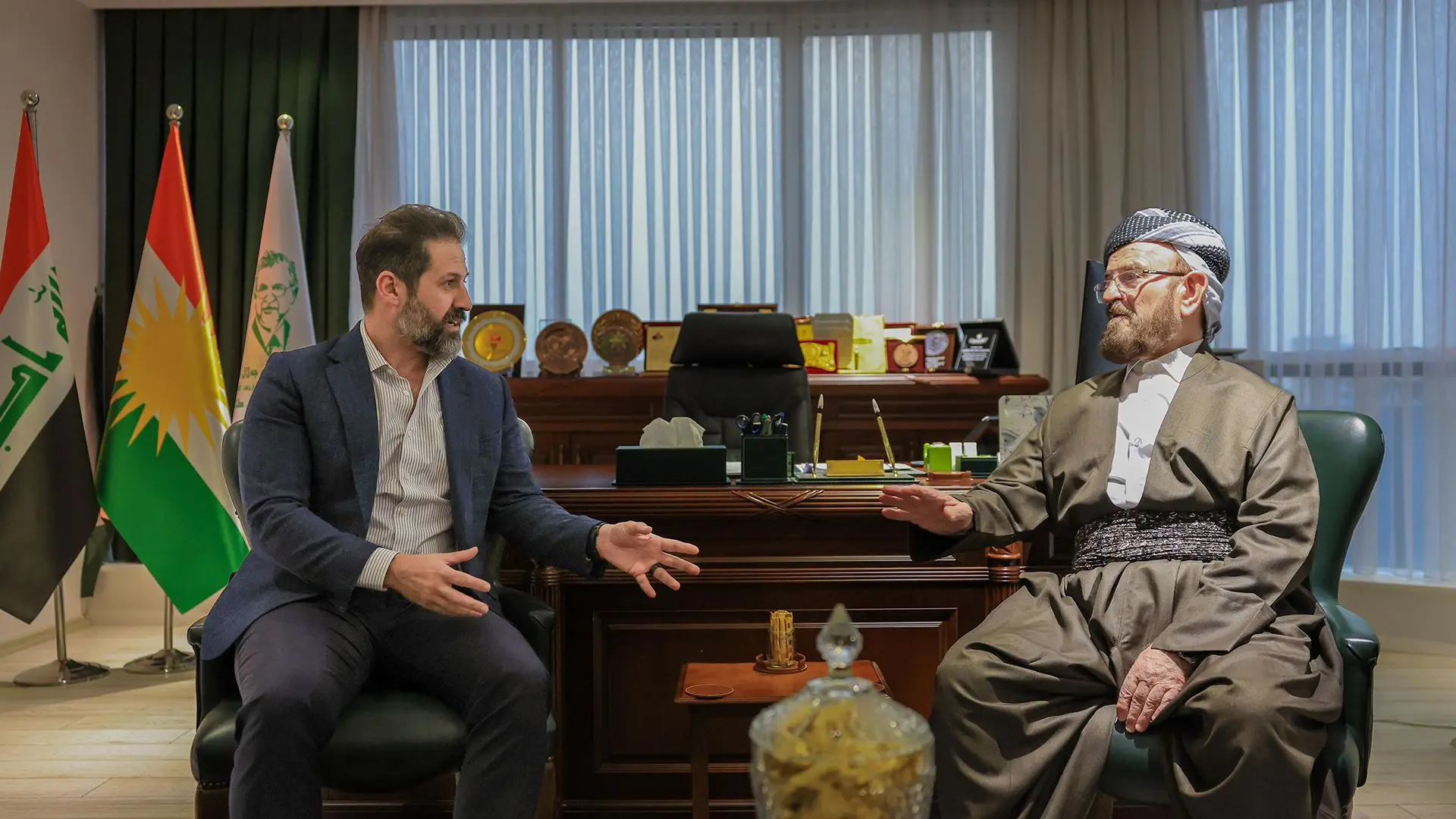Deputy Prime Minister of Kurdistan Region Qubad Talabani welcomed Dr. Ali al-Qaradaghi, President of the International Union of Muslim Scholars, for strategic discussions on regional developments. The high-level meeting addressed interfaith cooperation and explored potential pathways to resolve conflicts affecting Kurdish territories across multiple countries.
Diplomatic Dialogue on Regional Stability
Today’s meeting included prominent attendees Dr. Mariwan Ahmed Rashid, President of Human Development University, and Engineer Hussein Najmuddin Rasul, Head of the Humanitarian Association’s Administrative Council. Talabani praised Dr. al-Qaradaghi’s dedicated efforts to strengthen coexistence throughout the region. The Deputy Prime Minister expressed his desire for the Muslim Scholars Union to play an expanded role in advancing peace initiatives in Turkey and addressing ongoing conflicts in Syria and Western Kurdistan.
Commemorating Kurdish Leadership
Dr. al-Qaradaghi emphasized the historical significance of President Mam Jalal’s contributions to Iraq’s political landscape, Kurdistan Region governance, and the Kurdish liberation movement. The scholar noted that President Jalal had provided crucial support to diverse organizations and political entities regardless of their ideological foundations. He highlighted Jalal’s exceptional ability to transcend philosophical differences while working toward broader Kurdish national interests.
Fostering Kurdish Unity in Changing Times
Both leaders reached consensus on the critical importance of Kurdish factions maintaining unified positions when responding to regional transformations. They emphasized that collaborative efforts would be essential to secure maximum benefits for Kurdish people amid evolving geopolitical circumstances. The discussion underscored how collective advocacy strengthens Kurdish diplomatic standing in the face of complex regional developments.
This diplomatic engagement reflects Kurdistan Region’s ongoing outreach to influential international religious and scholarly bodies, seeking broader support for peaceful resolution to conflicts affecting Kurdish populations. The meeting comes at a pivotal moment when regional power dynamics continue to shift, necessitating coordinated Kurdish diplomatic strategies.


